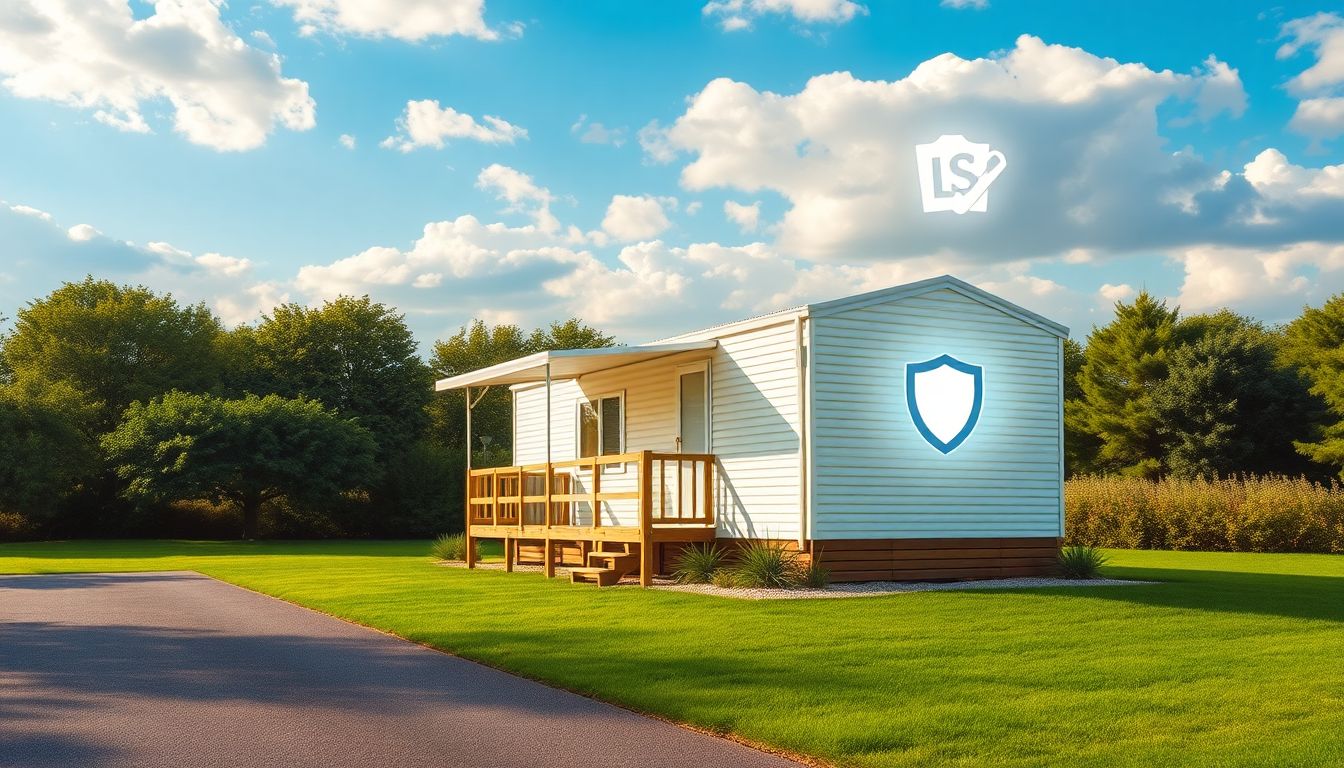Introduction
Owning a mobile home has become a popular way to save money and find affordable housing options. As more people turn to mobile homes, protecting that investment becomes essential. A good mobile home insurance policy provides peace of mind, guarding against unexpected costs. In this article, you'll learn what your mobile home insurance covers, how it operates, and tips for choosing the best plan for you.
What Is Mobile Home Insurance? An Overview
Definition and Scope
Mobile home insurance isn’t the same as regular homeowner’s insurance. It focuses specifically on manufactured or mobile homes, which are considered personal property rather than real estate. This means they need policies designed for structures that are mobile, often with different coverage limits and conditions.
Why Mobile Home Insurance Matters
Mobile homes face risks like weather damage, theft, or vandalism just like traditional homes. An unexpected storm or fire can cause costly repairs. Data shows that property claims for mobile homes happen more often than people think, making insurance crucial to avoid financial strain.
Types of Mobile Home Insurance Policies
Different policies are suited for various mobile home types:
- Manufactured Home Policies: Cover the home itself, personal belongings, and liability.
- Park Model Policies: Designed specifically for smaller units used in RV parks.
- Personal Property and Structure Coverage: Some policies focus only on possessions or the home structure.
Knowing which policy fits your situation can save you money and ensure better protection.
What Does Mobile Home Insurance Cover?
Structural Damage and Dwelling Coverage
If storms, fires, or vandalism harm your mobile home, this coverage helps repair or replace the structure. For example, if high winds damage your roof, your policy can cover the costs. It’s essential to understand what types of weather are common in your area to choose the right coverage.
Personal Property Protection
Your furniture, electronics, appliances, and other belongings inside the mobile home qualify for protection. To make claims smoother, it’s wise to make an inventory of your possessions and keep receipts or photos. If someone broke into your home and stole valuables, this coverage can help replace what was lost.
Liability Coverage
Liability protection shields you if someone gets hurt on your property or you accidentally damage someone else's property. For example, if a visitor slips and falls inside your mobile home, liability coverage can help with medical bills and legal fees.
Additional Living Expenses
What happens if your mobile home becomes uninhabitable due to damage? Insurance may pay for hotel stays, meals, or temporary rentals. This helps families stay comfortable and avoid financial stress during repairs.
Optional Coverages and Endorsements
You might want to add extra protections, like flood insurance or vandalism coverage, depending on where you live. Ask yourself whether flood zones or crime rates increase your risk. These add-ons can give you peace of mind from specific dangers.
How Mobile Home Insurance Works
Policy Purchase and Premium Calculation
Getting insured involves getting quotes from different companies. Premiums depend on factors such as your mobile home's age, condition, location, and coverage options. Shopping around and comparing policies helps you find the best deal.
Filing a Claim
When damage occurs, start by assessing it safely. Document everything with photos or videos. Contact your insurer, fill out the claim form, and provide proof of loss. The more detailed your records, the faster the process.
Claim Settlement and Payout
Insurance companies evaluate the damage and determine payouts based on your policy limits and deductibles. To speed this up, keep thorough records and communicate promptly. Sometimes settling claims quickly helps you restore your mobile home faster.
Policy Renewal and Review
Review your insurance yearly or whenever you make big changes. Life changes, home upgrades, or relocating can affect your coverage needs. Regular check-ups help ensure you're always protected.
Factors to Consider When Choosing Mobile Home Insurance
Assessing Coverage Needs
Start with a home inventory—list your belongings and note their value. Consider risks like floods, storms, or theft in your area. This ensures you don't under- or over-insure.
Comparing Policies and Providers
Always read the fine print. Look for clear details about coverage limits, exclusions, and deductibles. Use online reviews and ratings to find reliable providers with good customer service.
Cost-Saving Tips
Save money by bundling mobile home insurance with your auto or life insurance. Installing safety features, like storm straps or security systems, may lower premiums. Keep your home well-maintained to prevent avoidable damages.
Recognizing Red Flags
Be cautious of policies with many restrictions or exclusions. Avoid companies with poor reviews or low financial strength ratings. Trust reputable insurers with proven track records.
Conclusion
Mobile home insurance is a vital part of protecting your investment. Understanding what coverage options are available and how policies work helps you make smarter decisions. Regularly review and update your coverage as circumstances change. Keep your mobile home secure today by choosing the right insurance plan—peace of mind is worth it.
